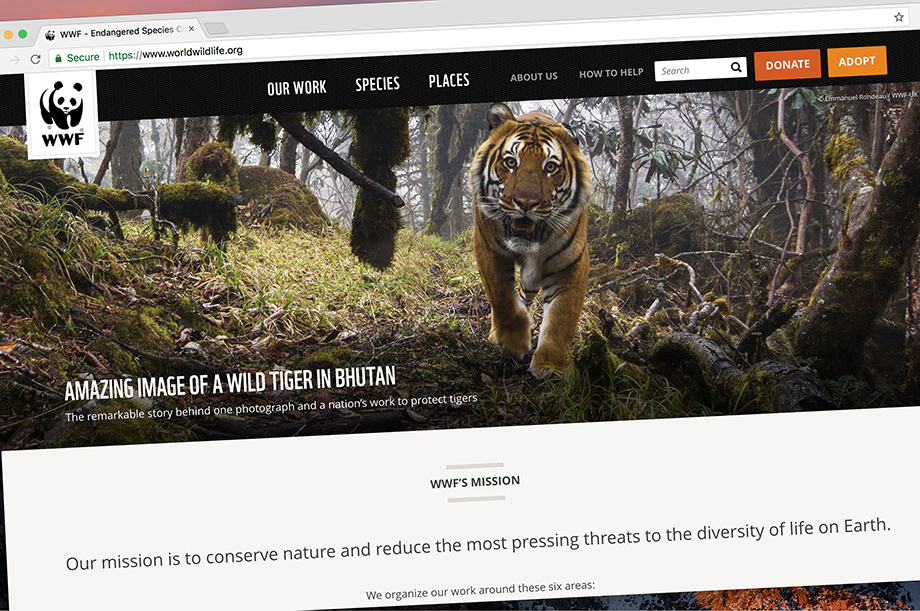Does your nonprofit have a website? Does the website include a blog that allows viewers to post comments? Does it include a discussion forum or other online community component where people can post videos, pictures, or other text or media? Do you have social media channels? If your nonprofit uses this type of online outlet as part of its digital communications with its constituents, there are several things your nonprofit should be doing to protect itself from copyright infringement liability under the procedural safe harbors of the Digital Millennium Copyright Act of 1998 (the “DMCA”) (17 U.S.C. 512(k)(1) (2012)). This post describes the DMCA and how your organization can take advantage of its protections now, or maintain protection under the new rules recently issued by the United States Copyright Office (the “Copyright Office”).
Background of the DMCA. Any organization that has a website that includes content created by others, or that allows users to post their own content, is likely conducting an activity eligible for protection under the DMCA. An organization with such a website may need protection under the DMCA because it is considered the publisher of the content on its website, including the content of user posts, even if the organization does not control or possibly even know about the content posted by the users. Therefore, an organization could be liable for any infringing content or activity, such as photos, videos, text or other unattributed work, posted by any user. Congress passed the DMCA to allow an organization to limit its liability for copyright infringement by following the specific procedures outlined in the DMCA and its accompanying regulations, essentially creating safe harbors for complying organizations.
The steps required for protection under the DMCA’s safe harbors depend on the online activities of the organization, so you may need to contact counsel for additional advice. Most organizations seeking protection under the DMCA must designate an agent to receive complaints from copyright owners who believe their rights are being infringed by online content attributable to an organization. After designating an agent, organizations seeking protection must make information about the agent available on the organization’s public website, most commonly in the website “terms of use.”
The rules to make this designation changed on December 1, 2016. Why? Since the DMCA was adopted, the designation process has been paper-based: an organization would send a printed designation form to the Copyright Office, which would scan it, and add it to an online directory. With a filing cost of $105, plus additional fees, the slow processing times, and no requirement to update the agent on a regular basis, nor a system for reminding organizations to do so, the Copyright Office’s own studies show the online directory has become sorely out of date. This undermines the purpose of the DMCA and the directory because copyright holders may be unable to contact valid agents. As a result, organizations that were at one time protected by the DMCA, and that may believe themselves still to be protected, may actually be exposed to liability.
To correct this issue, the Copyright Office developed online software and proposed new regulations, resulting in a final rule issued November 1, 2016, to change how the Copyright Office accepts and processes online registration and designation of agents.
Basic Steps Under the New Rules to Take Advantage of the DMCA. Whether your organization previously designated an agent or not, you can take advantage of the protections offered by the DMCA under the new rules. The Copyright Office now requires online registration and designation of agents, and will no longer accept paper forms.
Any organization that previously designated an agent with the Copyright Office and wishes to maintain its protection must register online by December 31, 2017, to avoid a lapse in coverage under the DMCA. (If your organization previously registered but your designated agent information is out of date, we recommend you designate your new agent as soon as possible to ensure coverage under the safe harbor, rather than wait until the end of the year. To see your organization’s current agent information in the old directory, go here.)
The steps below outline how to register and designate an agent online under the new rules for all organizations, whether or not an organization has previously designated an agent with the Copyright Office.
Step 1: Create a Registration Account
An organization must register with and use the Copyright Office’s DMCA Designated Agent Directory (the “New Directory”) online here. To register an account, an organization must provide:
- Its full legal name.
- Any alternate names the organization uses. Alternate names includes other names under which the organization is doing business, as well as names the public would be likely to use to search for the organization’s designated agent in the New Directory, such as website names and addresses (with .org, .com or .edu endings, for example), software application names, and other commonly used abbreviations and names. Separate legal entities are not considered alternate names, however. See below for additional discussion of registering multiple legal entities.
- Its physical street address (not a post office box unless an exception is granted by the Copyright Office). This physical address will be public on the New Directory.
- Two individuals to serve as representatives on the account, including their names, positions or titles, organizations, physical mail addresses, telephone numbers and email addresses. These individuals will receive automated confirmation and reminder emails generated by the online system and correspondence from the Copyright Office regarding the agent designation and account. The identities of these individuals will not be public. Importantly, identifying someone as a “representative” is not the same as identifying them as the designated agent. That happens in the next step.
Each legal entity must have its own separately registered agent designation, but may not need its own account. Legal entities that are related to a parent or sibling entity may but need not manage their own online accounts. For example, a registrant (an organization or a third party hired by an organization) can manage multiple entities through a single online account, and separately designate agents for the appropriate legal entities. In addition, an organization may choose a third party to create, manage or serve as the representatives for the online account.
Step 2: Designate an Agent
Once registered, an organization must designate an agent by providing the name, address (post office box is acceptable), phone number, and electronic mail address of the agent. The agent can be a natural person within the organization or a third party hired by the organization. The agent may be designated by any of the following:
- name ( e.g., “Sally Jones”)
- position or title (e.g., “Chief Marketing Officer”)
- department within the organization or within a third party (e.g., “Copyright Compliance Department”) or
- third party entity generally (e.g., “XYZ Takedown Service”)
The new cost to designate (or amend or renew) an agent online is only $6.
Step 3: Update Website Terms of Use
In addition to notifying the Copyright Office through the online designation process, an organization must also provide its designated agent’s information on its public website, usually in its terms of use. Website terms of use must also include provisions that reasonably implement and inform subscribers and account holders of a policy for the termination of subscribers and account holders who are repeat copyright infringers. For more information on website terms of use, contact intellectual property counsel.
Step 4: Maintain and Renew the Designation
Designations will be valid for three years, so long as they are up to date (and accurately noticed to the public via the organization’s website). An organization must keep its agent information up to date, and at the very least must renew its designation every three years. Any time an organization updates its agent designation with new information, a new three-year period begins. The online system will send a series of reminder emails well before the renewal deadline to the representatives named on the account. However the organization is responsible for its account and agent designation, regardless of whether it actually receives any reminders. Keep in mind that the New Directory account and agent designations may require attention and updates when an organization experiences corporate changes, such as a name change, merger or acquisition, in order to avoid conflicting accounts or designations in the directory.



